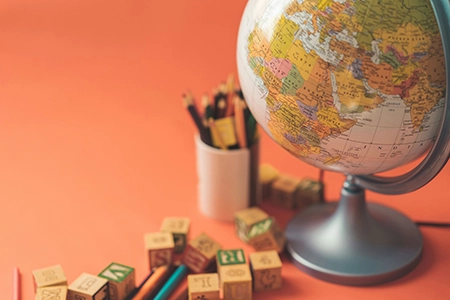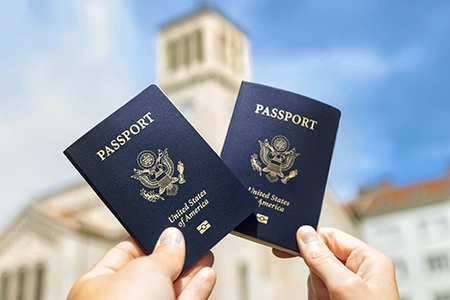In our increasingly connected world, legal translation is vital in bridging the gap between legal systems and languages. This is not just a matter of translating words from one language to another; it involves conveying complex legal concepts across different cultures and languages accurately and clearly. Legal translation is especially important as even minor errors can have significant legal consequences, misunderstandings, or delays in legal proceedings.

Before we begin…
Elevate Your Legal Documents – Entrust your legal documents to our expert Turkish-English translation services. With over 25 years of specialized experience in legal translations, we guarantee precision, cultural accuracy, and confidentiality. Whether it’s contracts, legal proceedings, or official certifications, we deliver translations that stand up to the scrutiny of legal standards.
Legal translation involves a wide range of documents, including contracts, patents, court judgments, and legal correspondence. Each document presents unique challenges that require language skills and knowledge of legal systems and terminologies. For example, translating legal documents between Turkish and English requires special attention to each language’s legal terms and concepts. This task becomes even more difficult when dealing with legal systems that are vastly different from one another.
The unique challenge of legal translation is to ensure that the translated document is legally sound and accurately conveys the original document’s meaning and intent. This requires a translator who is fluent in both languages and deeply understands the legal systems of both the source and target languages. The role of the legal translator is critical and demands a high degree of precision, expertise, and ethical commitment.
As we explore the world of legal translation, we will discuss the challenges that legal translators face and the best practices to ensure that legal documents are accurate and reliable. Whether you are negotiating a contract with a company in a different language or translating legal policies, skilled legal translation is essential in our global legal landscape.
Understanding Legal Translation
Legal translation is converting legal documents and texts from one language to another. It requires linguistic skills and a comprehensive understanding of legal concepts and terminologies. Legal translation covers a wide range of documents, including contracts, wills, patents, court judgments, and legal statutes.
Legal translation aims to accurately convey the meaning of legal texts while respecting the legal system and culture of the target language. However, this can be difficult since each legal system has its rules, terminologies, and structures that may not have direct equivalents in another language or legal system.
Legal translation is not just about replacing words with equivalents in another language. It is about interpreting and translating legal concepts and terms in a culturally and legally appropriate way for the target audience. This requires a translator who is not just bilingual but also bicultural, with a firm grasp of the legal systems involved in the translation.
Legal translation is important because it enables people from different countries to interact with each other legally. Accurate translation is crucial, whether it’s a business contract, personal legal document, or court transcripts. Without it, misunderstandings can arise that could have serious consequences.
Accuracy in Legal Translation
Legal translation is a highly complex process requiring meticulous attention to detail. It’s important because even the slightest error in translation can cause significant legal consequences. Accuracy in legal translation goes beyond just translating words. It involves understanding the legal terminology and concepts specific to each legal system. Legal documents are often characterized by complex sentence structures and specialized jargon, which makes it challenging to maintain the integrity of the original text.
Inaccurate translations can lead to misunderstandings, misinterpretations, and legal liabilities. This could mean the failure of international contracts or disputes over intellectual property rights for businesses. For individuals, it could affect immigration proceedings, international marriages, or inheritance issues.
Legal translators work closely with legal professionals to ensure accuracy and conduct extensive research to find the most appropriate legal terms and interpretations. This collaborative approach helps mitigate the risks associated with legal translation. It ensures that the translated document is linguistically accurate and legally sound.
In conclusion, legal translation is critical to ensuring legal documents are effectively and accurately communicated across different languages. It requires a deep understanding of legal language, culture, and systems.
Challenges in Legal Translation
Translating legal documents is a complex task requiring much expertise and attention to detail. The language used in legal documents can be complicated, and legal systems can differ greatly from country to country. Translators are also responsible for ensuring that sensitive legal information is translated accurately and ethically. Overcoming these challenges is essential to produce reliable and truthful translations – which is especially important in legal matters.
Linguistic Challenges
Legal translation involves complex language challenges. Legal documents use technical terms and formal language that can be difficult to understand. Translators must be highly skilled in source and target languages to accurately convey the meaning of each term. A small error in translation could change the entire meaning of the document. Sometimes, there may not be an exact term equivalent, making it even more challenging. Legal translators must also keep up with evolving language to ensure an accurate and up-to-date translation.
Cultural and Jurisdictional Differences
Legal translation can be quite complex due to differences in legal systems across different countries and cultures. Every legal system has its own set of laws, practices, and legal concepts, which makes it essential for the translator to have a good grasp of the language and understand these differences. It’s not just about translating the words but about making sure the translation is relevant and appropriate in the context of the target legal system. For instance, some legal concepts in one country may not have direct equivalents in other countries, which makes it necessary for the translator to find ways to bridge these gaps. Therefore, legal translation demands linguistic skills and a comprehensive understanding of comparative law.
Confidentiality and Ethics
Regarding legal translation, keeping confidentiality and ethical standards is incredibly important. Legal documents often contain sensitive information; the translator’s job is to keep it private and not share it with anyone else. Breaking this confidentiality can have serious legal consequences and affect the outcome of legal proceedings. In addition, legal translators must remain unbiased and objective in their work, ensuring that their translations accurately represent the original text. This is important so that the translation can be relied upon and trusted. Legal translation is a complex process that requires precision, cultural and jurisdictional understanding, and a strong commitment to ethical standards. By overcoming these challenges, legal translations can be accurate, reliable, and effective.
The Role of the Legal Translator
Legal translators play a very important role in the legal world. They are responsible for translating legal documents accurately and effectively, which is not an easy task. This job requires a unique combination of language skills, legal knowledge, and ethical responsibility. It’s not just about being good at languages; it also involves understanding legal systems, cultural differences, and the specific requirements of legal documentation. Legal translators help bridge the language gap in the legal field, ensuring everyone can understand important legal information.
Qualifications and Skills Required
To be a good legal translator, one must have a strong grasp of both the source and target languages. But language proficiency is not enough. A legal translator must also be familiar with legal terms and concepts in both languages. This often requires special education or training in legal translation and sometimes even a background in law. For instance, if a legal document needs to be translated between Turkish and English, the translator needs to know about the legal systems of both countries. This includes understanding legal procedures, contract law, civil rights, and other important legal areas.
Navigating Legal Nuances
Legal translation is more than just changing words from one language to another. It involves understanding legal concepts and ensuring they make sense in the target language. This is especially tricky when dealing with legal systems with different foundations, like Turkish and English. A good legal translator must navigate these differences carefully to ensure the translation is accurate and legally coherent.
Ensuring Accuracy and Reliability
When it comes to translating legal documents, accuracy and reliability are essential. Legal translators have to ensure that every translated document meets the highest precision standards. This can involve a lot of research, double-checking, and sometimes even asking legal experts for help. The aim is to produce a translation that represents the original accurately and is legally valid and effective in the language and place where it’s being used.
Ethical and Professional Standards
Legal translators play a vital role in the international legal system. They are responsible for translating legal documents and communications from one language to another, ensuring that everyone can understand the law, regardless of their language or culture.
However, being a legal translator is not just about knowing multiple languages. They must also follow strict ethical and professional standards, including being impartial, keeping client information confidential, and ensuring their translations are accurate and unbiased.
Their work is crucial in maintaining trust and reliability in the legal translation process, and it enables individuals, businesses, and governments to navigate the complexities of international law. In today’s globalized world, legal translators are essential in ensuring that legal communication is clear, accurate, and legally sound.

Bridge Business and Cultural Gaps
Expand your business reach with our tailored Turkish-English translation services. Specializing in business, finance, and banking translations, we understand the importance of accurate and culturally nuanced language in corporate communication. Our services are designed to resonate with your target audience, ensuring that your business message is conveyed effectively and professionally. From annual reports to marketing materials, we provide translations that reflect your company’s excellence..
Technological Tools and Assistance
Legal translation is a complex task that involves a lot of attention to detail. Technology can be very helpful in making the process faster and more accurate. However, even with the help of technology, legal translation can be difficult because legal language is very specific and legal systems are complex. There are some things that technology can’t do, and legal translation is one of them. It requires a human touch to fully understand the language’s nuances and ensure that everything is translated correctly.
The Role of Technology in Legal Translation
Translation tools are very useful in legal translation. These tools help the translators to maintain consistency in the use of legal terms. They also store previously translated segments and provide quick access to legal terms and their equivalents in different languages. For instance, when translating legal documents from Turkish to English, these tools can ensure that the legal terms are accurately translated throughout the document. This not only saves time but also improves the accuracy of the translation.
Limitations of Technology
While technology has many benefits, it still has some limitations regarding legal translation. For example, machine translation tools are not yet advanced enough to handle the complexities and precision required for legal documents. They struggle with understanding context, legal terminology, and the subtle differences in language that are essential in legal translation. This is especially true for languages with significant differences in structure and idioms, such as Turkish and English.
In addition, legal documents often contain private and confidential information, and using online translation tools can compromise clients’ confidentiality. Legal translators must be careful when using technology to ensure they do not compromise their clients’ privacy.
Human Expertise Remains Crucial
Even though technology can help with legal translation, human translators are still extremely important. This is because legal documents are very complex and require a deep understanding of language, culture, and the law. While machines can be helpful, they can’t replicate the judgement and expertise of a human translator. This is especially true when translating between languages and legal systems that are very different. Ultimately, legal translations need a combination of technology and human expertise to be accurate and reliable.
Final Word
Legal translation is a tricky business that requires a lot of skill, knowledge, and professionalism. It’s not just about translating words from one language to another but also understanding the legal systems and cultures involved. There are many linguistic, cultural, and ethical challenges to navigate, all while maintaining confidentiality and accuracy. While technology can be helpful, human expertise is crucial for ensuring the translated material is true to the original meaning. Legal translation is especially important in a globalized world, where it helps people from different legal systems communicate clearly and effectively.

Before you go…
Looking for superior translation services that are fast, precise, and budget-friendly? Look no further! We offer top-notch translation solutions at unbeatable rates. Contact us now to get a quote and let us help you communicate effectively in any language.
Further Reading:
- Legal Translation, Leon Wolff



